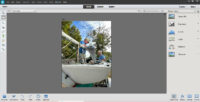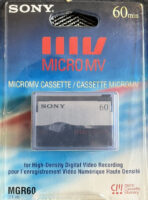Part I: What types of Coverage will you need?
Part II: How to Boost Your Homeowners Policy to Cover Your Business
Part III: How to Buy Business Insurance and Part IV – How to Buy Insurance for Your Video Shoot (This Section)
Reducing Insurance Costs
One important way to lower your insurance costs is to avoid buying insurance policies that you do not need. Because of the difference in individual risk, the list of unnecessary policies will be different for everyone. For example, someone who does not own a home would not need to purchase a homeowners policy because there is no risk of losing their home. That is an obvious example, but there are times when one’s risk is very small and suffering the consequences of the loss is a better risk than purchasing a policy.
Following is a list of insurance policies that most people would not need to purchase for various reasons (reasons are listed when applicable):
Insurance to Avoid:
- Comprehensive and collision coverage for automobiles that have little or no value
- Personal injury protection coverage (PIP) or just buy the minimum if you have a good health insurance policy
- Roadside assistance if you already belong to an organization that offers this
- Mechanical breakdown insurance if you currently own a new car or have a leased vehicle that is still under warranty
- Rental Car Insurance if you have a current full coverage policy or a credit card that already provides this insurance (check with your agent to see how much your current policy will cover)
- Life Insurance if you are single and have NO dependents (this includes avoiding life insurance for children!)
- Travel insurance if your current health insurance policy covers you abroad
- Extended Warranties on Appliances (this in the end may cost more than just buying a new one)
- Insurance on outstanding credit card balances (this type of insurance can be costly and has a lot of loopholes to go through before any benefit is paid)
- Credit Insurance, which is voluntary insurance on your mortgage (a typical life insurance policy would be a better option)
By avoiding the above policies, you will not reduce your risk and you still may experience a loss in any or all of the above categories, but the risk for most is so small it’s just not worth the price of the insurance.
Part IV:
How to Buy Insurance for Your Video Shoot
Your small video business, which you operate as a sideline or extra income opportunity, is now covered with additions to your homeowners’ policy, an equipment floater, and professional liability coverage. Suppose you have an opportunity of producing a short-term, high-budget project. You don’t need an annual premium program, and your own equipment is covered. Now it’s time to consider short-term video production insurance.
There are many companies who deal in this type of insurance for the entertainment industry. These package policies cover the basic risks involved in video shoots and last from 60 to 180 days, depending on your needs. Restrictions are placed on the total budget of your project, typically up to $300,000. Here’s the coverage you may get in such a package:
- Rented equipment
- Owned equipment
- Props, sets and wardrobe
- Negative and faulty stock
- Third party property damage
- Extra expenses coverage
- General liability
- Errors & Omissions
- Automobile liability for non-owned vehicles
- Workers’ compensation
The attractive aspect of this policy is that it only lasts as long as the production schedule, although some coverage extends beyond that scope. So, if your business does not normally require coverage for rented cars, you are not locked in to the cost of that insurance. This is not meant to suggest that this type of policy is inexpensive, but if you are working with a large-budget production, it may be worth considering. Short-term production insurance answers the needs of film and documentary producers, similar to the DICE insurance described above but on a temporary basis. Do you have something valuable to add to this article? Please email us and be sure to include the address or title of this article. Thanks!
Insurance Glossary
EXCLUSIVE AGENT
An insurance agent or salesperson who represents one insurance company and agrees not to submit business to any other company unless the policy is refused by the agent’s company. (See Captive agent)
BROKER
An insurance agent who specializes in commercial insurance and acts as an intermediary between the client and an insurance company. Brokers typically work on commission, researching the market for the best coverage for their clients.
BURGLARY AND THEFT INSURANCE
Insurance that covers the loss of property due to crime such as burglary, larceny, or robbery. It is standard in both homeowners’ and business policies.
BUSINESS OWNERS POLICY
A combination policy for smaller companies that covers property, liability and business interruption losses. These policies are generally cheaper than buying separate insurance policies.
COMPLAINT RATIO
The ratio of complaints against an insurance company compared to the premiums written. Some state insurance departments use this as a measure to rate companies. Complaints are counted only if they are upheld, and can come from consumers or service providers against the company.
CREDIT SCORE
A 3-digit number used by credit bureaus as a measure of an individuals use of credit. The information contained in a credit report affects consumers in many ways, from getting a job, buying or renting property, borrowing money, and buying insurance. Credit history is reviewed by insurers before writing a commercial policy because businesses tend to cut back on safety when experiencing financial difficulty. Auto and home insurers may also use an “insurance score” based on credit ratings in underwriting and rating insurance policies. (See Insurance score.) See The VU article “How to Improve Your Credit Rating” <http://videouniversity.com/articles/how-to-get-good-credit>
DEDUCTIBLE
A specified dollar amount or percentage of the claim amount that is paid by the policy owner. Some deductibles specify an amount of time that must elapse before benefits are paid. Larger deductibles result in lower premiums.
FIRE INSURANCE
Almost all homeowners and commercial policies cover losses from fire, but be sure to check the policy’s provisions for smoke and water damage as well.
FLOOD INSURANCE
Flood insurance is provided by the National Flood Insurance Program, which is a U.S. Government program. It can be sold by licensed insurance agents. Flood damage is excluded under homeowners and commercial policies. Surprisingly, flood damage is covered under the comprehensive portion of an auto insurance policy.
FLOATER
A floater policy covers property losses wherever they occur. Among the items often insured with a floater are expensive jewelry, stereo equipment, and furs. It provides broader coverage than a regular homeowners policy for items that may be transported or used outside the home or are not fully covered under the homeowner’s policy. Adding a floater assures the homeowner that the full value will be replaced in the event of theft, loss or damage.
HOMEOWNERS INSURANCE POLICY
A homeowners insurance policy covers the house and personal possessions inside, and structures on the property such as a garage. It protects the homeowner against a wide variety of damage caused by windstorms, fire and theft. The specific causes of damage are spelled out in the policy. An all-risk policy offers the broadest coverage. This covers all types of damage except what is specifically excluded in the policy.
Homeowners insurance may also cover living expenses in the case of loss. Known as Loss of Use, this provision in the policy covers the extra cost of living elsewhere while the house is being restored. The liability portion of the policy covers the homeowner for accidental injuries caused to others and/or their property, such as slipping and falling down on an icy walkway. Coverage for flood and earthquake damage is not available in a typical homeowners policy and must be purchased separately. (See Flood Insurance)
INLAND MARINE INSURANCE
This type of coverage is for shipments in transit by all forms of land and air transportation as well as bridges, tunnels and other means of transportation and communication. It does not include ocean shipments. Floaters that cover expensive personal items such as fine art and jewelry are included in this category. (See Floater)
INSURANCE SCORE
Insurance scores are rankings similar to credit scores, and are based on credit information. It includes information about whether the consumer has made timely payments on loans, the number of open credit card accounts and whether a bankruptcy filing has been made. An insurance score is a measure of how well consumers manage their financial affairs, not of their financial assets. It does not include information about income or race.
Studies have shown that people who manage their money well tend also to manage their most important asset, their home, well. And people who manage their money responsibly also tend to handle driving a car responsibly. Some insurance companies use insurance scores as an insurance underwriting and rating tool.
Part I: What types of Coverage will you need?
Part II: How to Boost Your Homeowners Policy to Cover Your Business
Part III: How to Buy Business Insurance and Part IV – How to Buy Insurance for Your Video Shoot (This Section)






Recent Comments